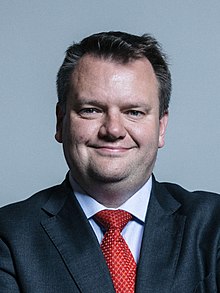Nick Thomas-Symonds – 2023 Speech on Conclusion of CPTPP Negotiations
The speech made by Nick Thomas-Symonds, the Shadow Trade Minister, in the House of Commons on 17 April 2023.
I am of course grateful to the Secretary of State for giving me advance sight of her statement, but having listened, the detail is paper thin. The published negotiating strategy from the UK Government was limited and even the policy paper that was published alongside the announcement on 31 March is very general indeed. The Secretary of State herself has been on the airwaves questioning the projections of her own Department that this offers 0.08% to our GDP. And while there has finally been progress in the CPTPP accession talks, this does not make up for the failure to deliver the India trade deal, or indeed the US trade deal, promised by the end of last year. Perhaps the Secretary of State can tell us when that US deal might be completed, given that negotiations are now not expected even to begin until 2025.
We on the Labour Benches are pro-trade, pro-business and pro-worker. Accessing new markets is essential, and it is particularly welcome because of the Government’s dreadful record on trade. The Office for Budget Responsibility forecasts that UK exports are due to fall by 6.6% this year, which is a more than £51 billion hit to the UK economy. That will only further impact on our public services, which are already under incredible pressure, and make the cost of living crisis even worse.
What exactly Ministers have agreed to in these accession talks will need to be scrutinised carefully, because I have watched Ministers come into this Chamber to laud trade deals, only to criticise them when they leave office or, in the Prime Minister’s case, when they are temporarily out of office—he said the Australia deal is “one-sided.”
This announcement was slipped out on the last day before recess. Of course it is great that the Secretary of State is here, but answers are needed. First, other countries that have joined CPTPP have secured important safeguards and support for their producers. It is vital that Ministers set out the details of what they have negotiated. In her statement, the Secretary of State mentioned that all trade deals involve a quid pro quo, but she did not say what the quid pro quo is in respect of CPTPP.
Specifically, New Zealand put in place side letters with all the other signatories to opt out of the investor-state dispute settlement mechanism, which could give investors from abroad the right to sue the Government for choosing to regulate in a particular area. The Government seem to have excluded ISDS with Australia and New Zealand, but not with the other countries. Why have they done that, and what assurance can the Secretary of State give that the Government can legislate in the interests of the British people without the threat of being sued under this mechanism?
The Secretary of State mentioned maintaining certain protections for agriculture, but can she be more specific? What particular support will the Government offer to the agricultural sector and when, particularly given the strong feeling that Ministers sold out our farmers to get the Australia deal over the line? Have specific conditions been put in place to address concerns about the importation of palm oil, which has been linked to deforestation?
The Secretary of State did not even mention the devolved Governments in her statement. What engagement does she proposes to have with them? What detailed assurances can the Government provide that the CPTPP agreement will not undermine the Windsor framework?
The Secretary of State also mentioned our influence as a member of CPTPP. We know that China applied to join in September 2021, so what assurances on economics and security have Ministers asked for from existing members in respect of China’s application?
The Secretary of State also mentioned the chapters in CPTPP, including on workers’ rights, on which she will know there are concerns in particular member countries. How will Ministers assure us that the strongest possible workers’ rights are adhered to, to ensure that UK workers operate on a fair playing field and that vulnerable workers internationally do not face exploitation?
I know that the Secretary of State does not accept the estimate that accession is worth 0.08% of GDP but, rather than debate the figure, what proactive steps will the Government now take to support our exporters to ensure the figure is driven up?
Kemi Badenoch
I am very grateful to the right hon. Gentleman for his questions. I know it must be difficult to sit on the Opposition Front Bench and find a way to celebrate while we agree this fantastic trade deal. The Labour Front Bench look like they have been sucking lemons. I am thrilled to be able to answer pretty much all his questions.
First, the right hon. Gentleman claims that this deal has happened at the expense of the India free trade agreement, but I stood at this Dispatch Box and told him that it is about the deal not the day. I know the Labour Front Bench would like us to rush into a deal that does not get the best for this country so that they have something to criticise, but we are not going to do that. We are going to negotiate a free trade agreement that is of mutual benefit and meets the needs of both UK and Indian citizens.
The right hon. Gentleman is right to say that we have not got a US FTA, but that is because the US is not doing FTAs with any countries; this has nothing to do specifically with the UK. When Administrations change, we cannot control what the partner country wants to do. So instead of just moaning, we have got on and signed memorandums of understanding with US states. Indeed, the Minister of State, Department for Business and Trade, my hon. Friend the Member for Mid Worcestershire (Nigel Huddleston) is not here today because he is on a plane to Oklahoma to sign such a deal. I am pleased to let the House know that.
The right hon. Gentleman talks about a quid pro quo, and this is absolutely right. One trade lesson 101 that I would like to give him is: you cannot agree a trade deal where you get everything you want and tell the people on the other side that they can have nothing. If he has a formula for negotiating a deal where we can sell everything to other countries and they cannot sell anything to us, he should come to the Floor of the House and explain how that can be done. A quid pro quo means having a deal that is of mutual benefit: we open our markets and they open theirs. When the legal text is done and we sign the agreement, there will be plenty of time to scrutinise—[Interruption.] He is chuntering from a sedentary position, “What is it? What is it?”. I would like him to read the statement or listen to it. We have said that 99% of goods will be tariff-free. That is something that we have negotiated across all parties. We have also talked about what we get from rules of origin.
The right hon. Gentleman was clearly listening to me on the radio when he heard me dispute the 0.08% figure. That is not because the figure is wrong; it is because it is doing something different from what he thinks it is doing. It is a model, not a forecast. What we do with models is quite different from what we do with forecasts. The model he is touting at the moment is not tailored for the specific behaviour and dynamics of the UK economy, it uses data from 2014 and it excludes growth in the membership of the bloc to those who have applied. So what we should not look at is the 0.08% figure, as it is purely a measure of what would happen if we did not have this trade deal—that is how the model works, and models are not forecasts. Instead, I ask him to focus on the facts, which I have repeated time and time again: the global middle class is going to be coming from the Indo-Pacific; we are talking about 500 million consumers; and by 2050, it is going to outstrip the European Union. We are getting in from the ground up and we are going to be shaping the future of the UK for future generations. This is not about trying to grow trade in the next five minutes. I have used the example previously, but this is like investing in a start-up and complaining that it is not brought any money in as soon as you have signed the agreement. We are thinking about the future, not the past.
The right hon. Gentleman also mentioned what we are doing for the agricultural sector, and I point to what the National Farmers Union said. We know that British farming is not going to succeed unless we can export. We have created an exporting deal; this is not just about the exports, but the services. All of that is going to benefit farmers and the agricultural sector, to the point that the NFU has come out to support this deal. I hope that Opposition Members can do that, even though it was us who negotiated it. I would like it if they would think about the country and not just about party politics.


